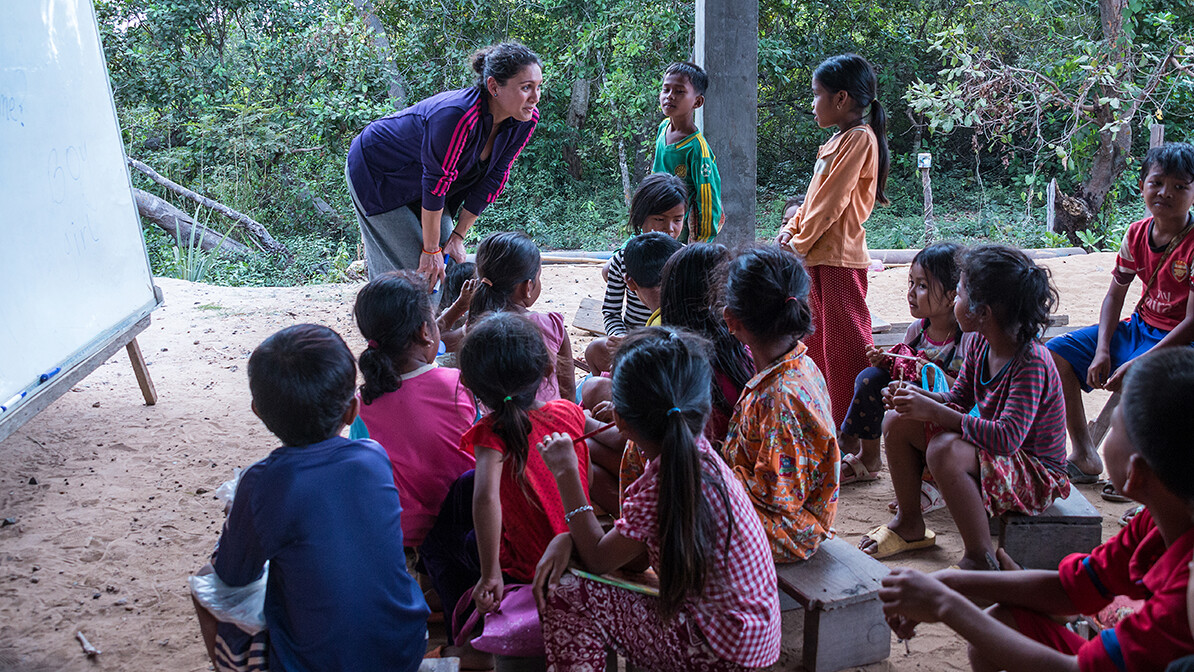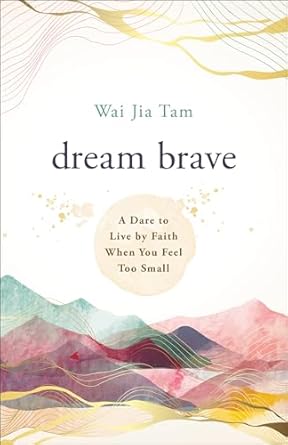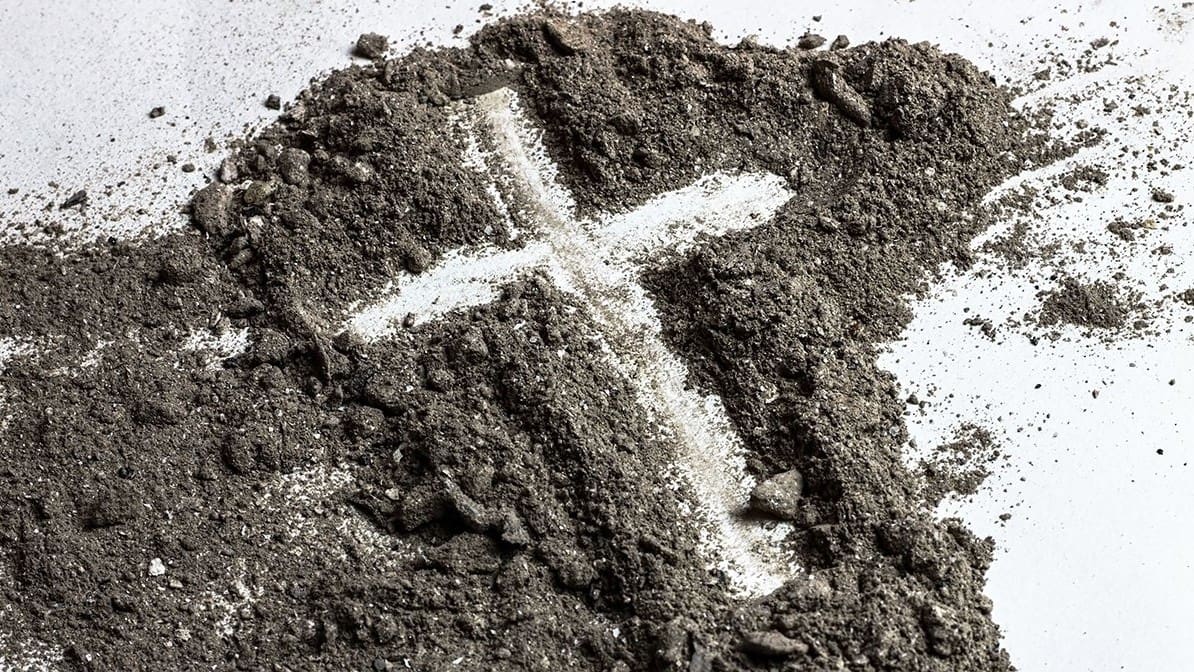- Home
- Spiritual Life
- When Loved Ones Say No, Hold on to Faith

When Loved Ones Say No, Hold on to Faith
“Faith is the substance of things hoped for, the evidence of things not seen.”—Hebrews 11:1
During my family’s annual rite of passage visiting famous temples in Malaysia and having our fortunes told, I watched the throng of people queue up to receive their destinies typed onto little pink slips of paper. I nearly choked from the smell of incense. Kneeling on the hard prayer cushion, the sensation of pins and needles filled my legs.
As my eyes beheld the hundred-foot-long sleeping Buddha made of gold, I asked God, Are you real?
How I jolted upright when I heard words spoken to my spirit in a way I’d never experienced: Yes, I am. But I’m not here. Find Me. I rose to my feet, hands tingling, sure my life would never be the same.
 When I picked up my first Bible just days later, I flipped to the book of Hebrews, and Hebrews 11:1 leapt into my heart: “Faith is the substance of things hoped for, the evidence of things not seen.” What a puzzling verse, I thought. How can something as unquantifiable as faith be as tangible as a substance or proof for “evidence of things not seen”?
When I picked up my first Bible just days later, I flipped to the book of Hebrews, and Hebrews 11:1 leapt into my heart: “Faith is the substance of things hoped for, the evidence of things not seen.” What a puzzling verse, I thought. How can something as unquantifiable as faith be as tangible as a substance or proof for “evidence of things not seen”?
In Greek, the word for “substance” is hupostasis, meaning confidence or assurance, and some commentaries even suggest the sense of a “title-deed.”1 How mind-blowing it is to conceive that faith alone gives us the certainty of an unseen, eternal inheritance, that it’s as real and powerful as a title deed that confers us the right of a heavenly heritage and legacy.
How can a seed of faith bring one hope when doors seem tightly closed? How can a whimsical idea combust into robust reality? Through an incident that changed my life, I learned all that can happen by a simple act of faith.
Persist in Prayer
At eighteen years of age, I had a little dream. But my pre-Christian and very Asian father immediately said no to it.
We were eating dinner at home when I casually asked if I could go to Nepal for a few weeks to help at a children’s home. I might as well have said I wanted to migrate to Antarctica, because the silence that followed only thickened. I don’t think my father quite knew how to respond.
“What?” he finally said.
Early in my life, my parents had already circumscribed my future. In Asian families, it’s a standing joke that children are allowed only four aspirations—to be a doctor, a lawyer, an engineer, or an accountant, in that order of priority. I was seven years old the first time my dad asked me what I wanted to be when I grew up. With unparalleled confidence, I declared, “A painter.” Year after year, my answer was the same, and every time my father challenged me—as though I were ten years older—until I eventually agreed that being a doctor was the noblest profession ever.
Once while on vacation in New Zealand, we stumbled upon an elderly street painter, his hands marred from years of toil. As if my father had perfectly orchestrated the scene for the conversation that would follow, the man smiled surreptitiously when he said to us, “It’s a hard life. Painting is a passport to poverty.”
Moved by the man’s plight, my father bought a beautiful oil painting of the sea from him, then hung it on a wall in my bedroom. Whenever I asked to apply to art college, he’d say, “You can always be a doctor who paints but not vice versa.” I would protest, and he would point to the painting, smile, and add, “Don’t forget, painting is a passport to poverty.”
Often, he would also say, “Work as hard as you can to be the best you can, so you can do as much good as you can for the world.” I could see why he said that. As the eighth of nine children, he told of his family members “sleeping like potatoes” in a single room while growing up in a village in Kedah, Malaysia, with only yams and pineapples to eat. Once, hospitalized for being severely malnourished, he clung to life.
He loved recounting his past, sharing the miracle of his being sponsored to America for college and how he and my mother worked in pizza parlors and washed dishes in family restaurants to make ends meet. He talked of the winters being so cold he’d seek shelter in hotel lobbies only to have guards shoo him away because he looked so shabby.
“No matter how poor someone is,” he always said, “treat them with dignity. Remember, Papa once struggled too.”
A year after I was born in Malaysia, my father moved our family to Singapore, where he believed we would have a better future. Graduating from medical school, doctoring, and living a comfortable life were the markers of success he had planned for me. So imagine the shock he suffered when I asked to go to Nepal.
I remember the chortle that came after the “What?” before his face straightened. “Why?” He looked at me in bewilderment, a frown stretching across his tired face as I shared how I’d made a few calls to mission organizations, asking if any help was needed.
“But surely you can help people here,” he said.
I love my father’s capacious nature, something in his spirit that stretches. For even when he said no, even when I took him on long routes of negotiation, he never got angry. Much of it might have had to do with his having risen to meet the hardships of his childhood.
One night he told me, “You don’t know anyone there. How can I trust someone I haven’t met to look after you?” And on another night he said, “There are lots of schools with children with disabilities in Singapore who would be happy to have you as a volunteer.” Night after night, we performed this dialectical dance. It became a daily after-dinner ritual with both of us determined to wear the other down with our stubbornness.
“But, Pa,” I said, “you told me we should help those who are most needy.”
“But you needn’t choose the most dangerous place to help people. Look at the political situation in Nepal right now.”
“But that’s why they’re in need, Pa!”
A few times we almost argued. Once, I think, we did. But he remained stoic mostly, an unimpressionable picture of wisdom. I adored his principled ways, his indifference to grand reasoning.
Then one night I said, “Remember Cambodia, Pa.”
***
Just a few months earlier, I’d led a team of student leaders on a Youth Expedition Project through the Singapore International Foundation to paint classrooms and murals at an orphanage in Phnom Penh. On our first night, we stayed at a villager’s home, a simple stilt house made of rattan and leaves. As I talked deep into the night with the host’s daughter—Chantrea, who was exactly my age—it became clear that while she dreamt of being a doctor, unlike me she didn’t have the means or opportunities to pursue that career. While I lived in a comfortable apartment, she lived on a farm struggling to survive.
As this realization dawned on us both, two strangers from worlds apart, we hugged each other tightly and cried our eyes red till we fell asleep. Then we bade goodbye the next morning, and our team moved to the orphanage.
The children there, tainted by frequent short visits by foreigners, were heartbreakingly patronizing, knowing exactly what to say or do to elicit special gifts from newcomers. “Hello, hello! You have sweets for me? Toy, maybe? Or camera?”
A boy named Kiry, far older in age than his height suggested, gave me a handmade gift. I looked at it, tearful. There in my hands lay a handmade kite, a symbol of freedom and dreams fashioned from a black plastic trash bag and sticks. It was all he owned, put into making a gift for me. Like Chantrea, he dreamt big dreams but had no means to reach them. The kite, a gift of disquieting contrasts, was a poignant reminder of that painful truth.
A month after I returned to Singapore, Chantrea wrote to me, There is no rain. And my father is ill, so I have to work in the fields. I can never go to medical school.
The injustice of her situation felt unacceptable, and my father and I decided to fundraise for her education. But the overseeing organization declined to accept our offer, citing problems they believed it would create for them—others might question why only Chantrea received the special privilege.
***
Visiting Cambodia forever ruined me for taking my easy life for granted. I kept my precious kite gift in my closet, taking it out from time to time. And now when I asked my father to remember Cambodia, his heart softened, and memories of his own growing up in a village, on a pineapple farm, and being hungry for days came rushing back. Even though he continued to say no, from the look in his eyes and the length of his pauses as the days went by, I could tell he was finally entertaining the possibility of allowing his daughter to visit a foreign country shaking with political instability.
Every night I prayed to God even though I didn’t really know how. But again, Hebrews 11:1 had stood out to me: “Now faith is the substance of things hoped for, the evidence of things not seen.” Was this faith? This blind believing in the impossible that God would send me to Nepal even though my circumstances pointed otherwise? It felt silly, kneeling on my bedroom floor talking to a God I’d never seen. Were all Christians this crazy?
A passage in the Bible gave me hope. In Matthew 17:20, when Jesus’ disciples could not drive out demons from a demon-possessed boy and asked why, Jesus told them, “Because you have so little faith. Truly I tell you, if you have faith as small as a mustard seed, you can say to this mountain, ‘Move from here to there,’ and it will move. Nothing will be impossible for you” (NIV, emphasis added). I also discovered a similar passage, Luke 17:5–6. When Jesus tried to teach His disciples about forgiveness, they said, “Increase our faith!” Jesus replied, “If you had faith like a grain of mustard seed, you could say to this mulberry tree, ‘Be uprooted and planted in the sea,’ and it would obey you” (ESV).
Jesus rebuked the disciples for having “little faith,” then promptly said that a mustard seed–sized faith would be sufficient! The paradox left me in awe, and I learned that the disciples had a misplaced faith in themselves.2 I received a revelation: God did not require me to summon more faith into my situation. Instead, He was inviting me to consider in whom my imperfect faith was placed.
I was relieved to realize that Jesus treasures a faith that is “real and trustful, though it be small and weak.”3 For no matter how we muster our own strength, it will never be sufficient for the God-sized dreams God places in our hearts. Only a humble faith placed rightly in God can harness the power of bringing those dreams to pass, even if they seem as impossible as the moving of mountains.
Later, as I matured as a Christian, I learned that Jesus chastised His disciples for having “little faith” on several occasions: when they doubted His provision (Matthew 6:25–34), when they were terrified by high winds and waves while in a boat during a storm (Matthew 8:23–26), when Peter took his eyes off Jesus and sank into the sea after also walking on water (Matthew 14:22–31), and when they failed to cast out a demon (Matthew 17:14–20). The Greek term oligopistoi renders colloquially to “tiny trusters” or “bitty believers.”4 They believed but couldn’t fully trust Jesus to come through.
Do you often feel like that? A “tiny truster”? A “bitty believer”?
Perhaps Mark 9:24 aptly encapsulates our honest confession, “Lord, I believe; help my unbelief!” We believe, and yet we flounder in our faith. Even when we come blithely to God to increase our faith, God reminds us that a little faith placed in the right place—in Him—is all we really need. Our faith is not limited by our spiritual impotence. Rather, it is as powerful as the God in whom we place it.5
…
References
- Strong’s Concordance, s.v. “hupostasis,” accessed on Bible Hub, https://biblehub .com/greek/5287.htm.
- Aaron Berry, “What Does Jesus Mean by ‘Faith as Small as a Mustard Seed,’” Crosswalk.com , May 26, 2020, crosswalk.com/faith/bible-study/what-does-jesus-mean-by-faith-as-small-as-a-mustard-seed.html.
- “Verse 2, Matthew 17,” in Pulpit Commentary, accessed on Bible Hub, https://biblehub.com/commentaries/pulpit/matthew/17.htm.
- Matthew Everhard, “What Is Faith Like a Mustard Seed?” Logos, January, 2023, https://www.logos.com/grow/what-is-faith-like-a-mustard-seed/.
- Everhard, “What Is Faith Like a Mustard Seed?”
Excerpt from Dream Brave by Wai Jia Tam provided by Chosen Books, a division of Baker Publishing Group. Copyright 2024. Used with permission.
Order your copy of Dream Brave: A Dare to Live by Faith When You Feel Too Small by Wai Jia Tam
Trending Now
Sign up today for your Inspiration Today Daily Newsletter
Supercharge your faith and ignite your spirit. Find hope in God’s word. Receive your Inspiration Today newsletter now!
Wai Jia Tam
Wai Jia Tam is a multi-award-winning, international humanitarian, doctor, and speaker. Selected for Forbes Asia's inaugural 30 under 30 list, she has been featured in numerous international media outlets and is the founder of Kitedreams ministry and Kitesong Global. Learn more at kitedreams.org
Related Articles
February 20, 2026
Stepping Out in Faith When God Calls You to the Impossible
Stepping out in faith often feels uncomfortable—especially when God calls you toward something that…
February 20, 2026
Finding Joy Is a Choice—Even When Life Is Hard
Sorrow doesn’t pause life—and neither does joy. If you’ve ever wondered how to find joy in…
February 19, 2026
The Secret to Supernatural Joy in Your Life
What if joy wasn’t tied to circumstances at all? Supernatural joy—the kind Jesus promised—can…
February 18, 2026
Ash Wednesday: Ashes to Ashes, Dust to Dust
Ash Wednesday invites believers to pause, remember their need for repentance, and prepare their…
Next Steps To Strengthen Your Walk
Inspiration Today Newsletter
Supercharge your faith and ignite your spirit. Find hope in God’s word. Receive your Inspiration Today newsletter now!
Christian Articles
Find articles to strengthen your walk and grow your faith. We have a wide range of topics and authors for you.
Submit A Prayer Request
We are here for you. Simply click on the button below to reach us by form, email or phone. Together we will lift our hearts and voices with you in prayer.





